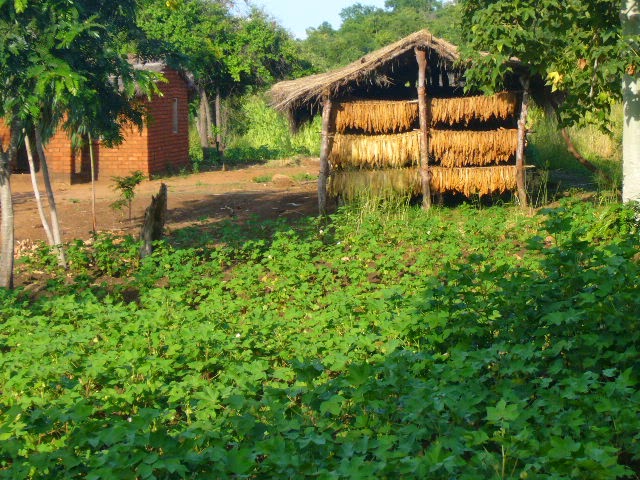Groundnuts (peanuts) are now being harvested. They have a strange growth pattern, nodules appear from the flowers, above ground, and grow downwards into the soil where the nuts form.


The mechanical lifter loosens the soil and plants; these are pulled from the ground by hand, stooked to dry then the nuts are plucked from the plant.
A sheller is used to remove the nuts from the shells which are then hand graded prior to being packed for sale as seed.
The Baobab is a strange tree, Rudyard Kipling described it as
having been pulled from the ground and pushed back in again the wrong
way up with the roots in the air.
 |
| Autumn colours are now appearing |
|
|
|
 |
| Children risk life and limb to pick the fruits. |


Baobab fruits are now recognised as a Super Food. They seem to contain one of everything we need and six times more than anything else!
The white pith contains a large number of seeds which taste very bitter. Does you good though.
Jonny and Jody visited for 10 days and we were able to show them
what we have been doing on the Farms as well as a taste of what Malawi
has to offer, including two nights at the Mvuu camp in Liwonde Game Park
where we saw a good selection of animals.

This elephant suddenly appeared and decided it wanted to swim across the Shire river.
Trunks can be useful at times when you sink to the bottom
 |
| Anyone know of a good dentist? |
|
|
|
Terri went back to England with Jonny and Jody to catch up with the family and see Emily and Thomas, our grandchildren.
Normal service will be resumed for the next Blog.




























.JPG)























